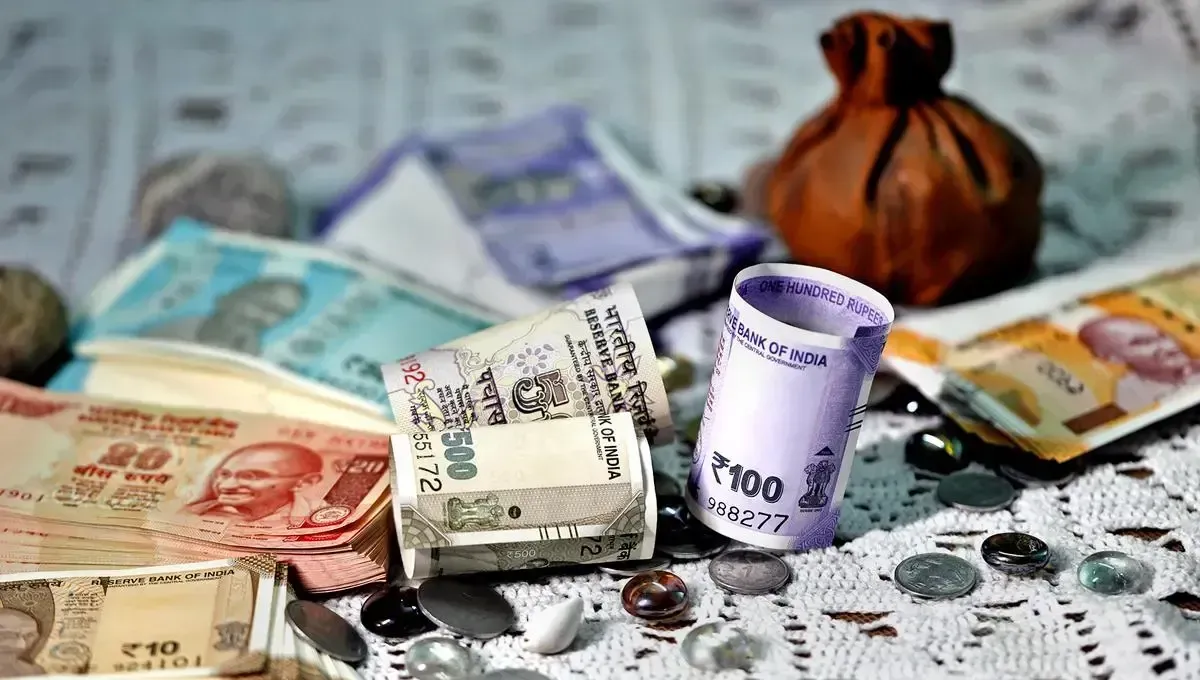Indian Rupee News: Full Coverage Report — Markets Under Pressure, RBI on Defence, Trade Talks in Focus

The Indian Rupee continues to face turbulence as global uncertainties, strong U.S. dollar movements, volatile crude oil prices, and cautious investor sentiment dominate the currency market. Over the past week, the rupee has hovered dangerously close to its record-low territory, prompting timely and aggressive interventions by the Reserve Bank of India (RBI) to curb volatility and manage excessive depreciation.
This detailed blog covers all major updates, expert insights, RBI actions, market reactions, and global triggers influencing the rupee as reported across leading publications.
📌 Current Status of the Rupee
The rupee has been trading between ₹88.50 – ₹88.72 per dollar, a narrow but sensitive range.
Despite modest relief from occasional dollar weakness, the Indian currency remains under persistent depreciation pressure.
Record low: ₹88.77, breached briefly earlier this week.
📉 Why Is the Rupee Falling? Key Factors Explained
1. Strong U.S. Dollar Momentum
With the U.S. economy showing resilience and Federal Reserve rate-cut bets fading, the dollar index remains elevated, exerting downward pressure on emerging market currencies—including the rupee.
2. Higher Crude Oil Prices
Recent spikes in global crude, particularly Brent hovering near $82–$85, increased oil import costs for India. As oil companies hedge more aggressively, dollar demand rises, contributing to rupee depreciation.
3. Weak Equities & FII Outflows
Indian markets face volatility, prompting foreign investors to pull out. This outflow enhances demand for dollars, weakening the rupee.
4. Importer Hedging
Importing firms are rushing to hedge exposures amid rupee instability. This buying pressure exacerbates short-term currency weakness.
5. Global Risk-Off Sentiment
Geopolitical tensions and global recession fears drive investors toward safe-haven assets like USD, hurting risk-sensitive currencies.
📈 RBI’s Intervention: Shielding the Rupee
The Reserve Bank of India has become highly active in the forex market to defend the rupee:
⭐ Measures Taken by RBI
Selling USD via state-run banks to prevent a free fall (estimated $2–3 billion in recent sessions).
Smoothing volatility to maintain orderly market conditions.
Monitoring speculative trades and reducing excess liquidity.
Anchoring short-term bond yields to support currency stability.
Outcome
While the rupee remains weak, it has avoided breaching the critical ₹89 per USD barrier—thanks to RBI’s persistent intervention.
📈 Market Reactions Across Major Media
🔹 Business Standard
Reports highlight India’s markets as a “relative-return disaster”, with analysts like Chris Wood predicting the rupee may bottom out at 89 unless global conditions improve.
🔹 The Hindu / PTI
Daily volatility shows the rupee dropping 6–15 paise in various sessions, closing around ₹88.65–₹88.69 amid subdued risk appetite.
🔹 Reuters
Notes that dollar strength and importer hedging continue to overshadow any positive cues.
🔹 Mint
Points out that RBI’s intervention remains the key cushion as expectations for Fed rate cuts weaken.
🔹 Times of India
Positive sentiment around U.S.–India trade talks has offered brief relief, giving the rupee small intraday gains.
🔹 MarketScreener / Informist
Market chatter suggests RBI is heavily anchoring spot markets to avoid panic-driven selloffs.
🔹 NDTV Profit / Jefferies
Jefferies notes “the worst is over,” expecting the rupee around ₹90 per USD in the next 12 months, indicating mild but persistent depreciation pressure.
🌍 Global Triggers Affecting INR
1. U.S.–China Trade Dynamics
Impacting dollar demand and safe-haven flows.
2. U.S.–India Trade Deal
Analysts say a strong trade deal could strengthen the rupee toward ₹83 per dollar—though this is seen as ambitious.
3. Fed Rate Path
Fewer expected rate cuts mean a stronger USD for longer.
4. Commodity Prices
Any rise in Brent crude remains a direct negative for INR.
📊 Expert Predictions & Forecasts
Short-Term Forecast (Nov End)
Expected to trade in ₹88.5 – ₹89 range
RBI likely to continue heavy intervention
Medium-Term (3–6 Months)
Rupee may stabilize if:
Inflation eases further
U.S.–India trade deal progresses
Crude prices stabilize
Long-Term Outlook (12 Months)
Jefferies projects rupee around ₹90 per dollar
Market consensus: gradual, controlled depreciation
📌 Key Developments of the Week
RBI sold up to $2 billion to defend the currency.
Rupee saw small intraday rebounds but remained weak overall.
Uncertainty surrounding U.S.–India trade negotiations created mixed sentiment.
Local stock market losses and foreign outflows pressured the currency.
Bond yields softened mildly due to RBI support.
Analysts warn that overreliance on the central bank may create “complacency risks.”
📘 Conclusion: What Lies Ahead for the Rupee?
The Indian Rupee is in a delicate, defensive phase. Despite global pressures, the currency is holding within a controlled range due to timely RBI intervention and steady macroeconomic fundamentals. However, sustained risks from:
U.S. monetary tightening
volatile crude prices
geopolitical shocks
equity market weakness
…mean the rupee may continue to drift lower in a gradual, managed fashion.
Investors and businesses should prepare for a high-volatility environment, with the rupee poised to move between ₹88.50–₹89.50 in the near term.
Press Release on Our All Websites for Powerful Online Presence
Get your brand featured with a world-class press release, published across all our high-authority websites — complete with powerful do-follow backlinks. Crafted to meet global press release standards, our service ensures maximum credibility, visibility, and SEO impact. Special pricing and exclusive offers are available for a limited time. Contact us today at sunil@justbaazaar.com to elevate your brand’s presence."
Created with © systeme.io









